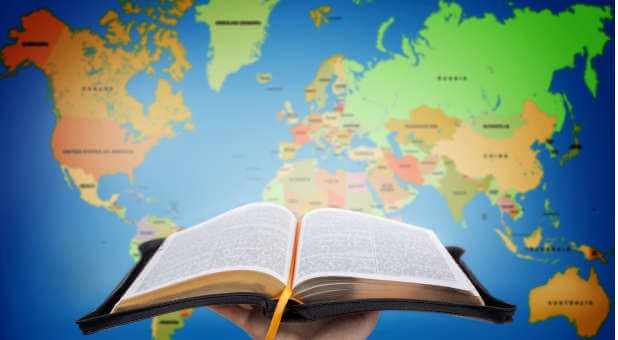“You don’t look like a missionary,” my new friend mused.
“Thanks, I think,” I smiled.
“I mean you don’t look like my mental image of a missionary. You’re so … normal,” she stammered, flushing with sudden embarrassment.
Recalling the denim culottes and bowl cuts featured on our family prayer card photos from my years as a missionary kid in the Philippines, I laughed and assured her that I knew what she meant.
“Hey, thanks for your grace with my fumbling,” my friend told me later. “You’re the first missionary I’ve ever really talked with. I’m not sure what I was expecting.”
I was glad to put her at ease but I also understood her initial discomfort. Missionary stories sometimes paint cross-cultural workers as extraordinary spiritual heroes living an exotic adventure, creating a sense that they’re innately different from the typical Christian. This misperception makes it challenging for missionaries and everyday Christians to connect in a meaningful way.
I’ve spent most of my life in missionary social circles, first as a child overseas and now as a member of Wycliffe Bible Translators. My many missionary friends and colleagues have a wide variety of personalities, strengths, tastes, backgrounds and experiences but all of them would want you to know these three things:
- Missionaries are regular people. As a child, I once heard a dramatic Sunday School lesson about Jo Shetler, a young woman who left her home in California, facing hardship and surviving a helicopter crash to help the Balangao people of the northern Philippines translate God’s Word into their language. It was several months before I made the connection between the courageous woman in the story and the family friend I called Aunt Jo; the Jo Shetler I knew was just a dear lady who ate ice cream in our kitchen and cheered as I performed songs from my favorite musicals.
No matter how unfamiliar or exciting portions of their lives may seem from the outside, missionaries spend most of their time immersed in normal, everyday responsibilities, struggles and joys. They shop for groceries and get tired of cooking meals. They help their kids with homework and scold them for leaving dirty clothes on the floor yet again. They argue, laugh, dream, grumble, grieve, play, celebrate victories and battle discouragement. Like Christians in every other walk of life, missionaries are incomplete, imperfect people who must learn to rely on God — often the hard way.
- God does as much work in missionaries as He does through them. When my husband and I were preparing to move our family to Papua New Guinea, our pastor included this astute observation in our commissioning service: “God often calls us to serve Him somewhere else because we’re too hard-headed to let Him accomplish His work in us where we are.” While our pastor was speaking broadly about surrendering to God’s plans rather than targeting us personally, his words felt prophetic during the 18 months we served overseas.
The difficulties we encountered unearthed in us many sinful attitudes, areas of immaturity and unhealthy coping mechanisms that might have stayed hidden if we’d remained comfortable. While we know God impacted people through our ministry in Papua New Guinea, we mostly remember how God humbled us and taught us deeper reliance on Him. And He’s continuing to humble and change us even now as we support Wycliffe’s work in U.S-based roles.
We’ve heard similar stories from countless missionaries who began their ministries with a passion to see the world transformed — only to find God dramatically transforming their own hearts in the process.
- Missionaries can’t accomplish much on their own. I like helping people and making an eternal impact; most missionaries do. But I’ve learned through experience that I can’t make much of a meaningful or lasting difference by myself. In fact, when I try to meet people’s spiritual, physical or emotional needs on my own, I often create a bigger mess than I solve. Or I get burned out, taking too much on myself.
Taking the gospel to every language community on earth feels like an overwhelming goal. And that’s a good thing! With such a monumental task ahead, we have to work together as the global church, helping each other and relying on God’s strength and power. Bible translation wouldn’t happen without translation teams, but it also wouldn’t happen without local churches, technology specialists, teachers, mechanics, pilots, personnel managers and a host of others. A multitude of faithful people undergird the effort with their prayers or financial contributions and God’s Spirit enables all of it.
The missionaries you encounter may live and work in a context very different than yours (and they may even sometimes sport denim culottes and bowl cuts) but they’re no more or less important to the work of God’s kingdom than you are. You don’t need to have special courage, an adventurous personality or spiritual superpowers to make an eternal difference. You can serve God wherever you are as a regular, in-process person who needs to depend on Jesus — just like your missionary friends. {eoa}
Beth Matheson is a writer and podcast host for Wycliffe Women of the Word. She and her husband, Mike, both grew up overseas as the children of missionaries and have served with Wycliffe Bible Translators since 2004.
Read articles like this one and other Spirit-led content in our new platform, CHARISMA PLUS.














































